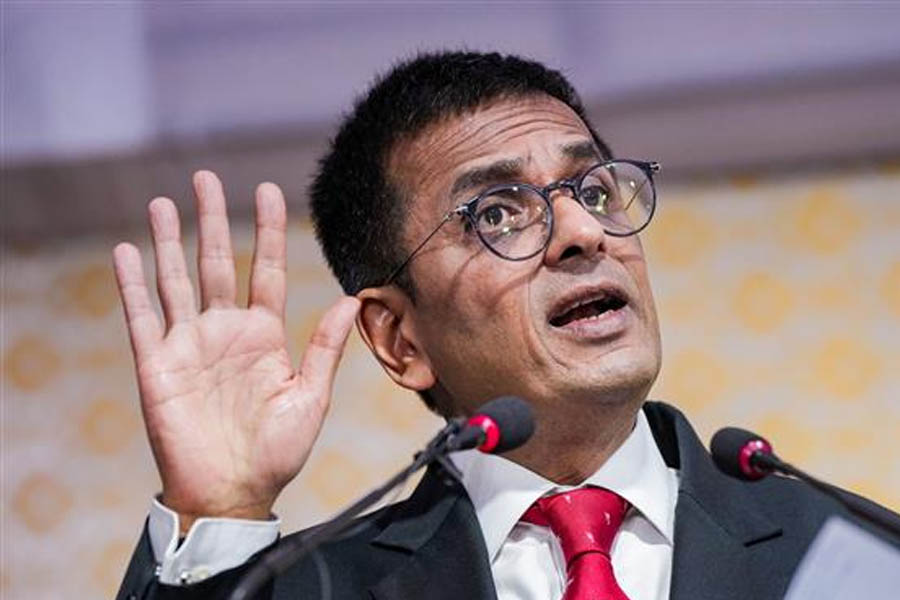Chief Justice of India DY Chandrachud, while speaking at the Ramnath Goenka awards for excellence in journalism, said that a “functional and healthy democracy must encourage the development of journalism”. The winners of 2020 and 2019 were felicitated at this year’s function in New Delhi. He also stressed the role local and community-based journalism plays in “social cohesion and political activism”.
Here is the full text of his speech:
A very good evening to everyone present here today. At the very outset, I extend my heartiest congratulations to the winners in all the categories of the awards presented today. Earlier today, I was browsing through the categories in which awards are presented as well as a few stories by previous winners and I must say that I am tremendously impressed by the depth and breadth of the reportage that journalists in our country engage in. To those journalists who have not won today – you are no less a winner in the game of life for yours is a noble profession. To have chosen it at all (especially when more lucrative options are available) and to continue to pursue it despite the many difficulties which arise, is admirable indeed.
As I was reflecting on the profession of law and that of journalism, it occurred to me that journalists and lawyers (or judges, as in my case) share some things in common. Of course, persons of both professions are fierce believers of the aphorism that the pen is mightier than the sword. But, they also share the occupational hazard of being disliked by virtue of their professions – no easy cross to bear. But members of both professions keep at their daily tasks and hope that one day, the reputations of their professions will receive a makeover.
The magnitude of the task that journalists face in their careers was well described by G K Chesterton, who said “Journalism largely consists in saying “Lord Jones is dead” to people who never knew Lord Jones was alive.” Journalists are constantly engaged in the endeavour of simplifying complex information for the consumption of the public, which is frequently unaware of even the most basic facts underlying the issues sought to be exposed. This simplification of information must not be at the cost of accuracy, which further complicates the journalist’s job. This is true world over.
The media sparks debates and discussion, which are the first step towards action. All societies inevitably become dormant, lethargic and immune to the problems that plague them. Journalism (in all its forms) is one of the key aspects which prods us out of this collective inertia. The media has always played and continues to play an important role in shaping the course of current events, and by extension, the course of history itself. Recently, the #MeToo movement was sparked in part by the publication of stories concerning the accusations of sexual harassment against prominent figures in the film industry in USA. The #MeToo movement had cascading effects all across the world and was a watershed moment in history. In India, the media’s coverage of the rape of Jyoti, or Nirbhaya, by certain men in Delhi resulted in widespread protests and later, in reforms to criminal law. Even on a day-to-day basis, some news stories prompt questions and discussion in Parliament and in the legislative assemblies of states.
The media is the fourth pillar in the conception of the State, and thus an integral component of democracy. A functional and healthy democracy must encourage the development of journalism as an institution that can ask difficult questions to the establishment – or as it is commonly known, ‘speak truth to power.’ The vibrancy of any democracy is compromised when the press is prevented from doing exactly this. The press must remain free if a country is to remain a democracy.
India has a great legacy of newspapers which have acted as catalysts of social and political change. Prior to independence, newspapers were run by social reformers and political activists in order to raise awareness and also as a means of outreach. For instance, Dr. Ambedkar launched several newspapers such as Mooknayak, Bahishkrut Bharat, Janata, and Prabuddha Bharat to create awareness about the rights of the most neglected communities in India. The newspapers and other publications of pre-independence India also give us a picture of the detailed history of those times. These newspapers are now a source of knowledge, a historical record of the times when courageous men and women acted against the colonial rulers and fought fiercely for our independence. The newsprint voiced the aspiration of the soul, a yearning


